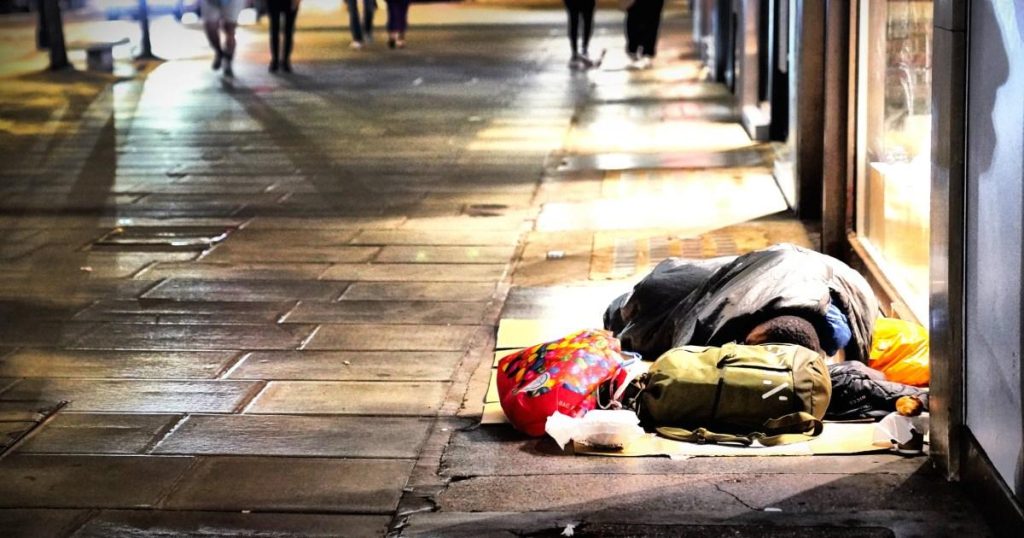The COVID-19 pandemic, while disruptive and tragic, inadvertently led to innovative government interventions in various sectors. One such initiative, “Everyone In,” addressed the pervasive issue of homelessness in England. Launched in March 2020 alongside the first lockdown, this program directed local authorities to provide accommodation for all rough sleepers, regardless of their eligibility under pre-existing homelessness legislation. Leveraging unused spaces like student dormitories, B&Bs, and holiday rentals, the initiative effectively housed a significant portion of the homeless population, achieving a near eradication of rough sleeping for a short period. This unprecedented response demonstrated the potential for swift and impactful action when resources and political will are aligned toward a common goal. The initial success of “Everyone In,” underscored by a 37% reduction in rough sleeping numbers in autumn 2020 compared to the previous year, offered a glimpse into the possibilities of a future without homelessness. However, this progress proved to be transient.
The positive impact of “Everyone In” began to wane as the pandemic subsided and the focus shifted away from homelessness. The resurgence of rough sleeping highlights the fragility of short-term solutions and the need for sustained commitment to address the root causes of homelessness. The decline in rough sleeping during the pandemic can be attributed to several factors. The suspension of evictions provided housing security, preventing a new influx of people onto the streets. The focused effort to house rough sleepers through “Everyone In” dramatically reduced the existing homeless population. This combination of preventative measures and direct intervention created a unique opportunity to make significant inroads against homelessness. However, the failure to capitalize on this momentum and implement long-term solutions led to a resurgence in rough sleeping numbers as the emergency measures were lifted.
As of June 2024, an estimated 8,309 people were sleeping rough in England, representing a concerning increase of over 1,000 individuals compared to the previous year. This reversal of fortune underscores the complex and multifaceted nature of homelessness, revealing it to be a deeply entrenched societal issue requiring comprehensive and sustained solutions beyond temporary interventions. The re-emergence of pre-pandemic challenges, such as the precariousness of the rental market, coupled with new contributing factors, has further exacerbated the situation. The resumption of evictions, a key driver of homelessness, has contributed significantly to the rising numbers of rough sleepers. The Renters’ Rights Bill, currently under parliamentary review, aims to address this issue by banning no-fault evictions, offering a potential avenue for mitigating the flow of people into homelessness. However, experts acknowledge that this single measure, while crucial, is insufficient to fully address the complex web of factors contributing to the crisis.
Beyond housing insecurity, the lack of adequate support for individuals struggling with mental health issues and substance abuse poses a substantial obstacle in combating homelessness. Many individuals experiencing homelessness require specialized support beyond simple accommodation. The absence of effective programs to address mental health and addiction issues leaves a vulnerable population at risk of falling through the cracks, hindering their ability to maintain stable housing. Moreover, the release of prisoners under early release schemes and the exodus from asylum accommodation have further contributed to the growing ranks of those living on the streets, highlighting the interconnectedness of various social systems and their impact on homelessness. These vulnerable populations often lack the necessary support networks and resources to successfully reintegrate into society, leading to an increased risk of homelessness. Addressing the underlying issues that contribute to their vulnerability is essential to preventing further increases in rough sleeping.
The government has acknowledged the severity of the homelessness crisis and has pledged significant financial investment and policy reforms to address it. A £1 billion commitment towards supporting those experiencing homelessness represents a substantial investment, signaling a recognition of the urgent need for action. Further, the government is actively working on reforms to disability and social security benefits, aiming to create a system that encourages employment rather than inadvertently incentivizing unemployment. This shift in approach reflects an understanding of the importance of empowering individuals to achieve financial independence as a pathway out of homelessness. However, the effectiveness of these initiatives remains to be seen, and the challenge of translating financial commitments into tangible improvements on the ground persists.
The fluctuating trajectory of homelessness in England, from the near eradication achieved through the “Everyone In” initiative to the subsequent resurgence of rough sleeping, serves as a stark reminder of the complex and persistent nature of this societal issue. The initial success of “Everyone In” demonstrated the potential for impactful change through swift and decisive action, but also highlighted the limitations of temporary solutions. The subsequent rise in rough sleeping underscores the necessity of addressing the systemic issues that contribute to homelessness, including housing insecurity, lack of support for mental health and substance abuse, and the challenges faced by vulnerable populations such as ex-prisoners and former asylum seekers. While government commitments to increased funding and policy reforms offer a glimmer of hope, the long-term success of these efforts hinges on sustained commitment, effective implementation, and a comprehensive approach that tackles the root causes of homelessness rather than simply managing its symptoms.











